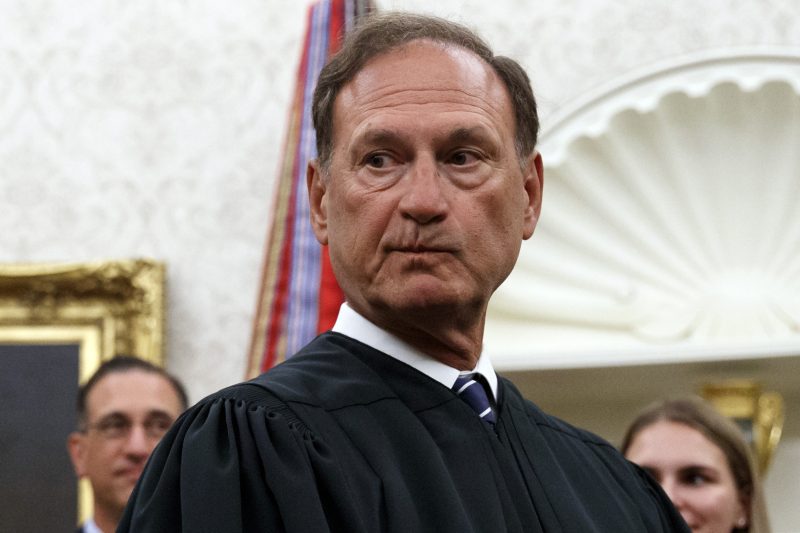In a recent turn of events within the realms of jurisprudence, Supreme Court Justice Samuel Alito has made a decision that has garnered significant attention and debate. The crux of the matter lies in Alito’s assertion that he himself is sufficiently impartial, sparking discussions about the nature of judicial bias and self-perception in decision-making.
The notion of impartiality is essential in the judiciary as it ensures the fair and equitable treatment of all parties involved in legal proceedings. Judges are expected to set aside personal biases and preconceptions to deliver judgments based solely on the law and evidence presented before them. However, the question arises: can a judge truly be objective in assessing their own impartiality?
Critics of Alito’s self-assessment argue that the very act of declaring oneself impartial can be seen as a display of bias. By asserting his own fairness, Alito may inadvertently call into question his ability to remain unbiased in cases where his personal views may come into play. This raises concerns about the potential impact of personal beliefs on judicial decision-making and the overall integrity of the legal system.
On the other hand, supporters of Alito’s stance suggest that self-awareness and reflection are crucial components of judicial integrity. By acknowledging his own impartiality, Alito may be demonstrating a commitment to self-assessment and a willingness to address any potential biases that may arise in his decision-making process. This level of introspection could potentially enhance the transparency and accountability of the judicial system.
Nevertheless, the debate surrounding Alito’s claim of impartiality sheds light on broader issues within the judicial system. It underscores the importance of maintaining public trust and confidence in the judiciary by ensuring that judges are held to the highest ethical standards and are able to conduct themselves with integrity and fairness.
In conclusion, the case of Samuel Alito and his self-proclaimed impartiality serves as a reminder of the complexities inherent in the administration of justice. While the question of a judge’s own perception of their impartiality may raise inherent challenges, it also presents an opportunity for reflection and improvement within the legal system. Ultimately, the pursuit of justice requires a continuous commitment to upholding fairness and integrity, both in the courtroom and in the minds of those who preside over it.

